Exploring the Role of Blockchain in IIoT
Blockchain technology has gained significant attention recently for its potential to revolutionize various industries. From securing supply chains to enabling trusted peer-to-peer transactions, blockchain has the potential to transform the way industrial systems operate. In the IIoT context, blockchain offers unique capabilities to enhance security, transparency, and trust in industrial operations.
By leveraging blockchain’s decentralized nature, IIoT applications can benefit from increased data integrity, immutability, and decentralized consensus. Understanding the fundamentals of blockchain technology and its applicability in the IIoT landscape is crucial for unlocking its full potential and driving innovation in industrial sectors.
Demystifying Blockchain Technology in the Context of IIoT
Typically, blockchain is a decentralized and distributed ledger that records transactions securely and transparently. Initially developed for cryptocurrencies like Bitcoin, blockchain technology has evolved to find applications in various industries, including the Industrial Internet of Things (IIoT). In the context of IIoT, blockchain brings several key benefits.
First, blockchain provides enhanced security through cryptographic algorithms, ensuring data integrity and preventing tampering or unauthorized access. This is particularly crucial in industrial environments where data accuracy and trust are paramount.
Second, blockchain offers transparency and immutability. Every transaction recorded on the blockchain is accessible to all participants, promoting accountability and enabling auditing of processes and data provenance.
Third, blockchain enables smart contracts, self-executing contracts with predefined rules. Smart contracts automate and streamline business processes in IIoT, eliminating intermediaries and reducing costs.
Furthermore, blockchain in IIoT facilitates trusted peer-to-peer interactions, reducing the need for central authorities and enabling direct transactions between devices.
Overall, understanding the fundamentals of blockchain and its potential applications in IIoT is essential for harnessing its benefits, such as enhanced security, transparency, trust, and automation. By leveraging blockchain technology, industrial sectors can revolutionize their operations, optimize supply chains, and enable new business models in the era of IoT.
Leveraging Cutting-Edge Software for Blockchain Implementation in IIoT
Several software platforms and tools significantly implement blockchain for the Industrial Internet of Things (IIoT). These tools provide the necessary infrastructure, development frameworks, and protocols to deploy and manage blockchain networks in IIoT environments.
- Ethereum: This is the most popular blockchain platform for developing decentralized applications (DApps) and smart contracts. It provides a robust and flexible framework for building blockchain solutions in IIoT, enabling secure and transparent transactions.
- Hyperledger Fabric: Hyperledger Fabric is an open-source blockchain framework for enterprise applications. It offers permissioned networks, privacy, and scalability, making it suitable for IIoT deployments requiring high control and privacy.
- IOTA: IOTA is a distributed ledger technology specifically tailored for the Internet of Things (IoT) and IIoT. It employs a unique architecture called the Tangle, which enables feeless microtransactions and facilitates secure data exchange among IoT devices.
- R3 Corda: R3 Corda is a blockchain platform for enterprise applications, including IIoT. It focuses on facilitating secure and confidential participant transactions, making it suitable for industries requiring privacy and regulatory compliance.
- Chainlink: This Oracle network connects intelligent contracts with real-world data and external APIs. In IIoT scenarios, Chainlink enables the integration of off-chain data and IoT devices into blockchain networks, ensuring data accuracy and reliability.
- IBM Blockchain Platform: IBM offers a comprehensive blockchain platform that supports blockchain network development, deployment, and management. It provides various tools and services for building and scaling blockchain solutions in IIoT, including security features and integration with other IBM services.
- ConsenSys Suite: ConsenSys offers blockchain tools and platforms for developing and deploying decentralized applications. Their tools, such as Truffle and MetaMask, provide development frameworks, testing environments, and wallet integrations for building blockchain solutions in IIoT.
These are a few examples of the software platforms and tools for implementing blockchain in IIoT. Each venue and device has features, capabilities, and compatibility with different blockchain networks. Selecting the appropriate software depends on the specific requirements, scalability needs, and interoperability considerations of the IIoT application.
Harnessing the Power of Blockchain for Enhanced IIoT Operations
Blockchain technology offers several key benefits when applied to the Industrial Internet of Things (IIoT) landscape:
- Enhanced Security: Blockchain provides robust security features through cryptographic algorithms and decentralized consensus mechanisms. It ensures data integrity, immutability, and protection against unauthorized access or tampering. By leveraging blockchain, IIoT systems can mitigate security risks and establish trust among participants.
- Improved Transparency and Traceability: Blockchain enables transparent and auditable transactions by recording every transaction on a distributed ledger visible to all participants. This transparency enhances supply chain visibility, enables traceability of assets, and promotes accountability across the IIoT ecosystem.
- Increased Efficiency and Cost Savings: By automating the processes through smart contracts, blockchain eliminates intermediaries, streamlines operations, and reduces transaction costs. It enables direct peer-to-peer interactions, automates payments, and facilitates real-time settlements, increasing operational efficiency and cost savings.
- Data Integrity and Provenance: Blockchain ensures the integrity and authenticity of data by recording every transaction in a tamper-proof manner. This feature is valuable for IIoT applications that require accurate and trustworthy data, such as asset tracking, quality control, and regulatory compliance.
- Decentralization and Resilience: Blockchain’s decentralized architecture eliminates single points of failure, making IIoT systems more resilient to attacks or system failures. The distributed nature of blockchain promises that data is repeated across multiple nodes, reducing the risk of data loss or disruption.
- Trust and Collaboration: Blockchain promotes confidence among participants by providing a transparent and safe platform for conducting business transactions. It enables trusted collaboration among stakeholders, even in environments where there needs to be more trust or existing relationships.
By leveraging these benefits, blockchain technology empowers IIoT deployments with enhanced security, transparency, efficiency, and trust. It has the potential to revolutionize industrial operations, optimize supply chains, and enable new business models in various sectors, fostering innovation and digital transformation.
Critical Factors to Consider When Implementing Blockchain in IIoT
Implementing blockchain technology in the context of the Industrial Internet of Things (IIoT) requires careful consideration of several factors:
- Scalability: Blockchain networks must address scalability challenges to accommodate the large volume of transactions generated by IIoT devices. Solutions like sharding, sidechains, or off-chain transactions can be explored to improve scalability and ensure smooth operations.
- Interoperability: Ensuring interoperability between blockchain platforms and existing IIoT systems is crucial for seamless integration. Standardization efforts and interoperability protocols are vital in enabling cross-platform communication and data exchange.
- Consensus Mechanisms: Different consensus algorithms, such as Proof of Work (PoW), Proof of Stake (PoS), or Practical Byzantine Fault Tolerance (PBFT), have different trade-offs in terms of security, energy efficiency, and transaction throughput. The selection of an appropriate consensus mechanism depends on the specific requirements of the IIoT application.
- Data Privacy: While blockchain offers transparency, it must address privacy concerns, especially in IIoT environments that handle sensitive data. Techniques such as zero-knowledge proofs, secure multi-party computation, or private transactions can be employed to protect data privacy while maintaining its integrity on the blockchain.
- Governance and Regulations: Implementing blockchain in IIoT requires considering governance models and compliance with relevant regulations. Clear guidelines for network governance, data ownership, and regulatory compliance ensure that the implementation aligns with legal requirements and industry standards.
- Infrastructure and Resources: Implementing blockchain for IIoT necessitates a robust infrastructure capable of handling the computational and storage requirements of the blockchain network. Sufficient resources, including computing power, storage capacity, and network bandwidth, are crucial for smooth operations.
By carefully addressing these implementation considerations, organizations can ensure blockchain technology’s successful deployment and integration in IIoT environments. Considering the application’s specific needs, industry standards, and regulatory requirements is vital to unlocking the full potential of blockchain and driving innovation in the industrial sector.
Closing Thoughts: Transforming Industries with Blockchain in IIoT
Blockchain technology holds immense potential for revolutionizing the Industrial Internet of Things (IIoT) landscape. Its benefits, including enhanced security, transparency, efficiency, and trust, make it an attractive solution for various industrial applications.
However, implementing blockchain in IIoT requires careful consideration of scalability, interoperability, consensus mechanisms, data privacy, governance, and resource requirements. By addressing these implementation considerations, organizations can harness the power of blockchain to optimize supply chains, improve data integrity, streamline operations, and enable new business models.
With the ability to enhance security, transparency, and trust in IIoT ecosystems, blockchain technology opens opportunities for innovation and digital transformation in industrial sectors. By embracing blockchain, industries can unlock the potential of IIoT, drive efficiency gains, and establish a foundation for secure and decentralized industrial operations in the future.



